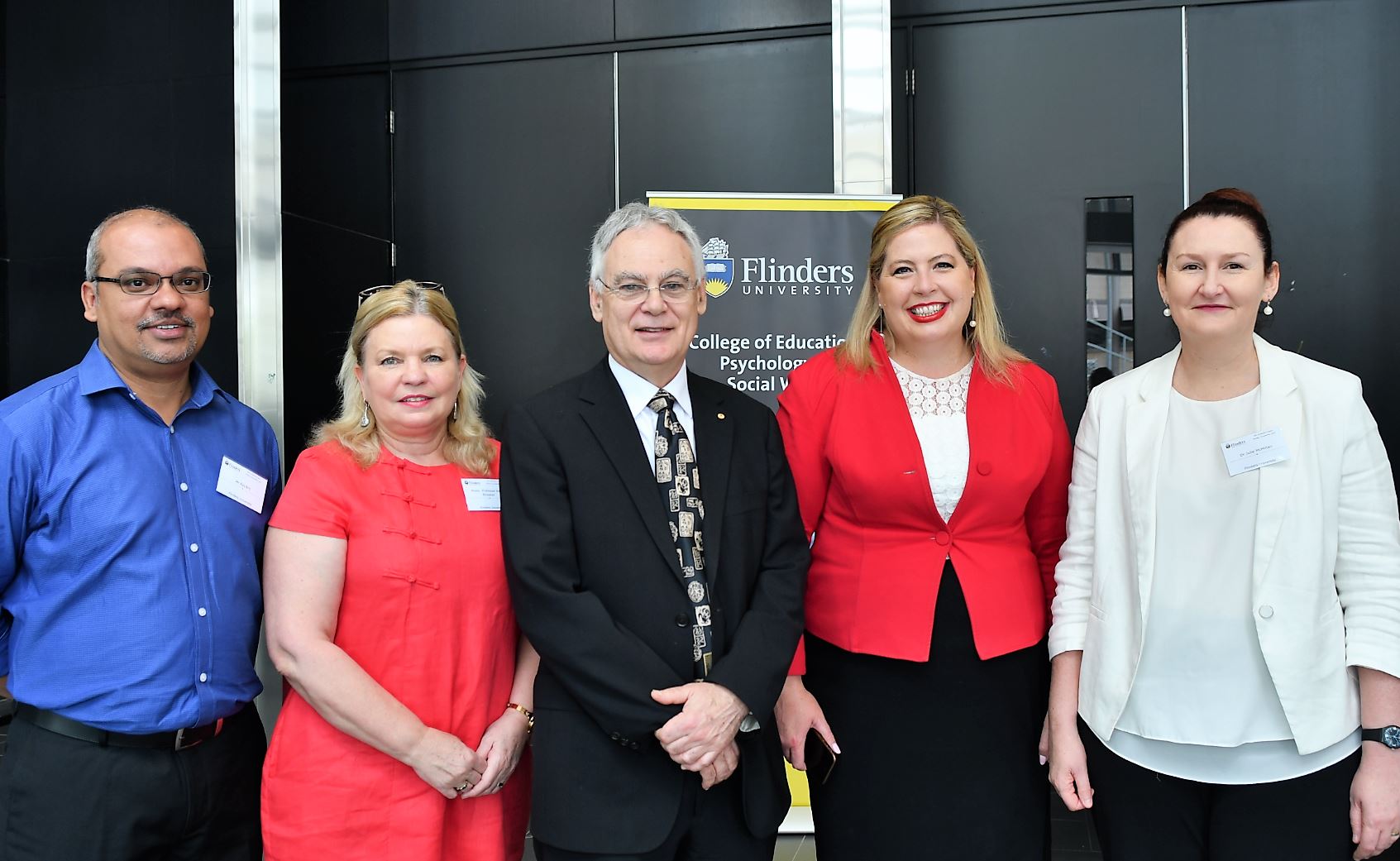
Up to 50 schools are better equipped to teach children living with autism as a result of a State Government-funded program at Flinders University.
The special autism qualification for 80 South Australian school teachers, which was offered over the past two years at Flinders Education, means many more primary, secondary and special education schools across the state have developed their expertise in the field of autism spectrum disorder (ASD).
The teachers from mainstream and special ed schools across metropolitan and regional SA completed the post-graduate certificate under the Flinders ASD Scholarship and Research Project.
Funded by more than $450,000 from the Department for Education and Child Development, the program was designed to provide sustained, long-term professional development over the full year.
The Minister for Disability, the Hon Katrine Hildyard, came to Flinders this week to congratulate the final group of teachers, indicating the State Government’s ongoing support for the program in 2018.
“Most programs are short-term or single workshops which have limited impact for students and teachers,” says course coordinator Dr Julie McMillan.
“We ran the four topics with a combination of 2-3 day intensive sessions, often on non-school days, with the remainder completed online and in schools with consultants from our partner organisation, Autism SA.”
This way the methodology – of supporting the social, communication, sensory, behavioural and learning of students with autism – was shared with other students and staff at the schools.
“The evidence demonstrates that change occurs when learning takes place on site, in classroooms,” says Dr McMillan. “Part of the evaluation is to measure the outcomes in schools including learning outcomes for students.”
Evaluation of the project, by Dr McMillan and Flinders Associate Professor Kerry Bissaker, will draw on school outcomes and feedback from course participants to report to the Minister for Education and Child Development Dr Susan Close next year.
“The program design and content of the teaching and research programs are, crucially, founded on evidence-based practices,” Flinders University Deputy Vice-Chancellor (Research) Professor Robert Saint said at the graduation ceremony.
“These school-based research projects provide rich data for the evaluation of the two-year project, so rather than guessing about their effectiveness, or relying on anecdotal evidence, we will be able to accurately assess the impact of the teaching and research elements of the project on outcomes for the broader community.”
Professor Saint says program is an “excellent example of collaboration between key stakeholders, in this case Flinders researchers and educators and the schools and teachers with primary responsibility for the education of our autistic children”.
Autism is a neurodevelopmental disorder which affects the brain’s growth and development. It is a lifelong condition, with symptoms appearing in early childhood, and is increasingly being diagnosed. It can be characterised by difficulty in social communication; difficulty in social interaction; and restricted or repetitive behaviours and interests.
Associate Professor Bissaker says the one-year courses have helped to build the leadership capacity of participants to support their colleagues in creating ‘autism friendly schools’.
“It’s the most rapidly growing diagnosis of children with disabilities over the past decade,” Associate Professor Bissaker says.
“There have been a number of reports saying this is a high-stress area for teachers.”
Other lecturers in the autism-focused courses were Flinders University special education specialists Dr David Armstrong and Raj Brij, from Education at Flinders.

